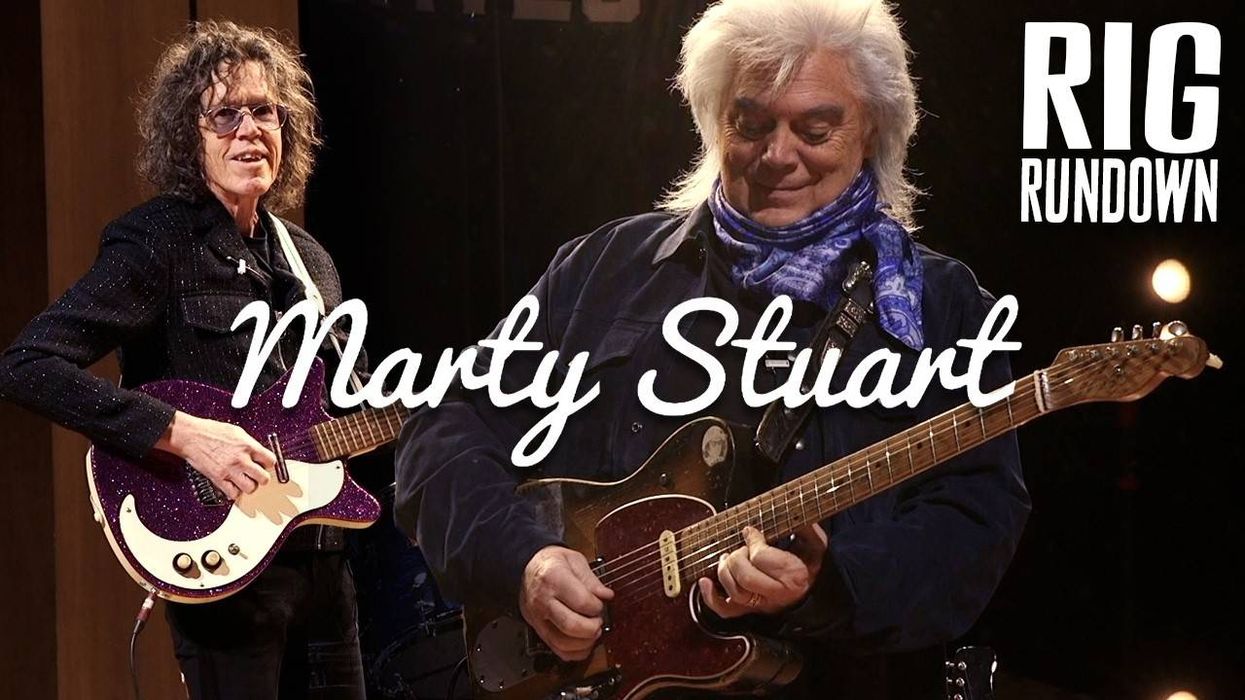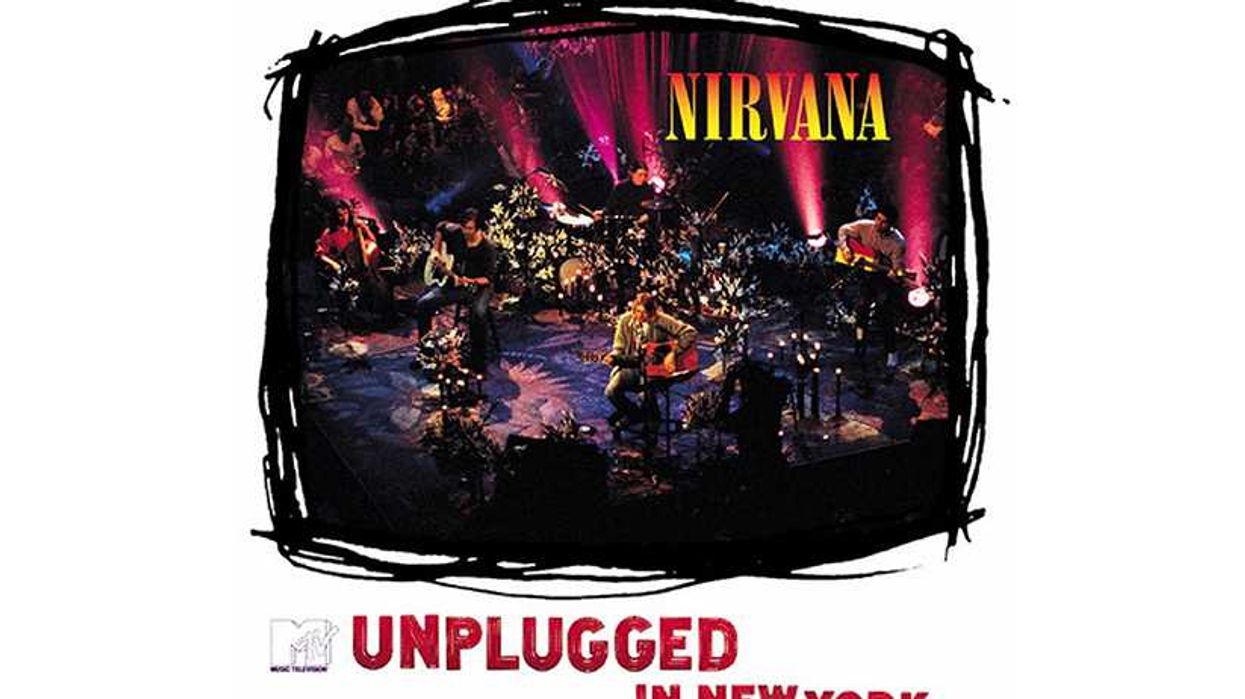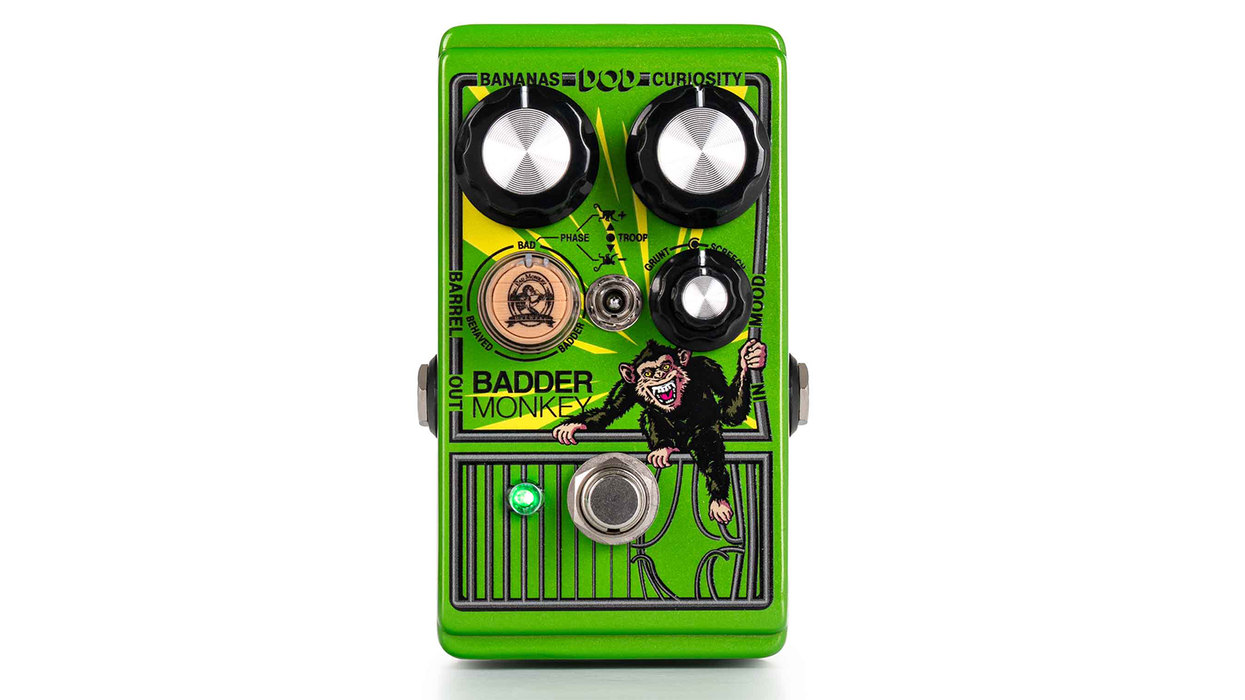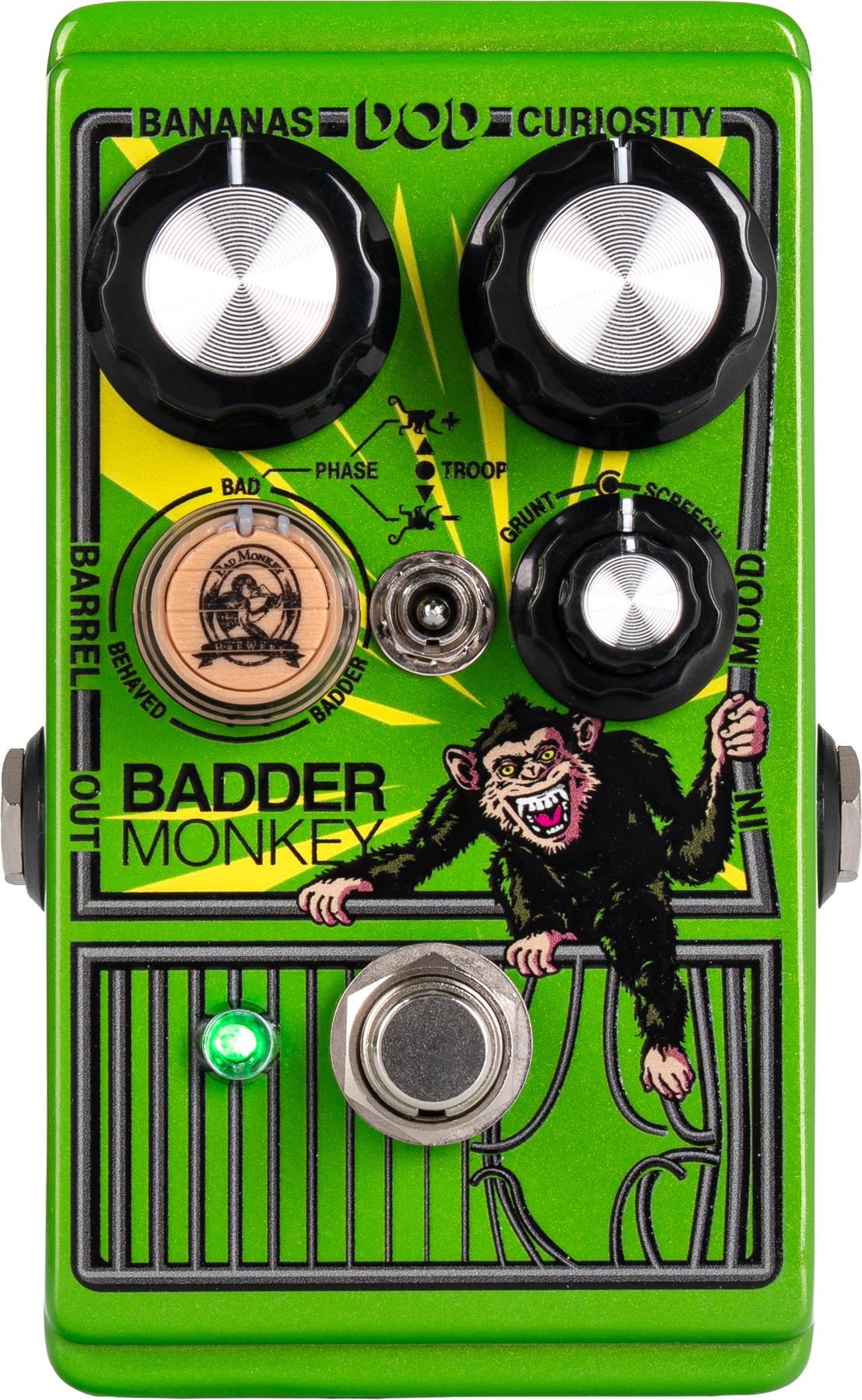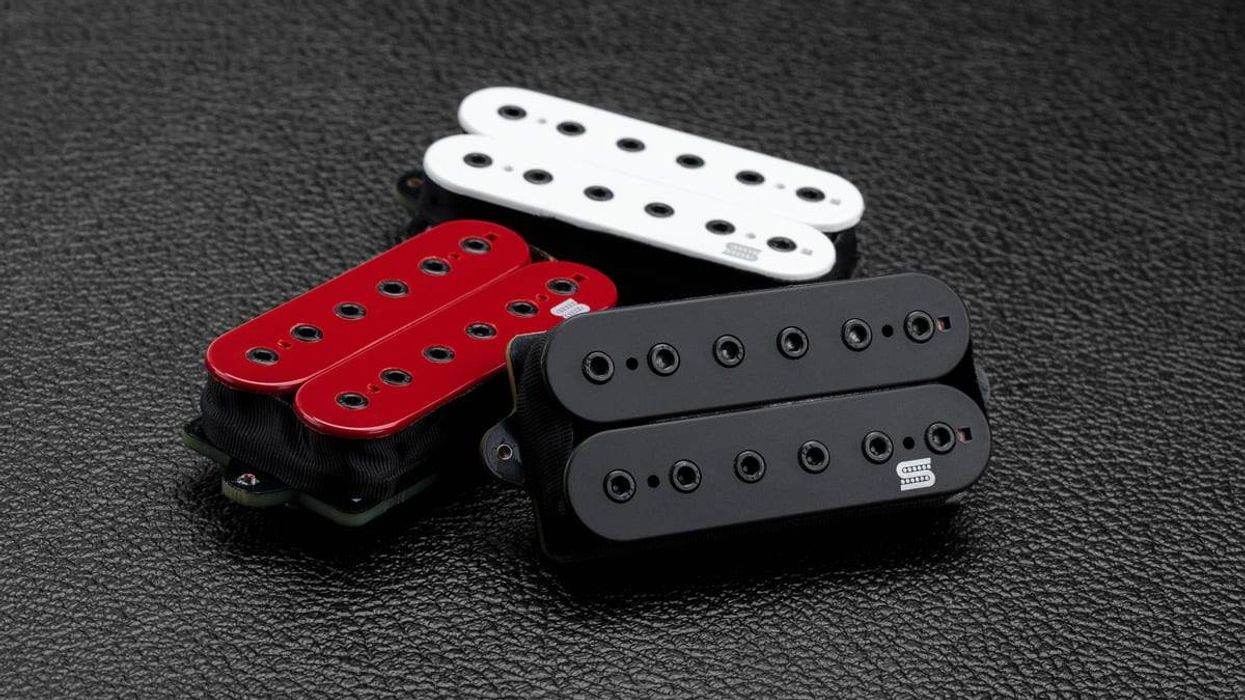A seemingly endless discussion on guitar
news groups concerns the idea of who is
(or isn’t) an innovator. In the sense that to
innovate is to introduce something new,
there are lots of them in the history of
guitar. But let’s think about what kind of
innovator we’re talking about. There are
two basic ways a musician can innovate: by
composing or by playing. For the moment,
let’s stick with players. Most will agree that
an innovator must influence others to follow
in their footsteps. Then there is the small
matter of whether the musician influences
players of their same instrument, players of
all instruments, or whole genres of music.
Let’s be brutally honest here. Most of us,
myself included, are basically imitators.
Before you go medieval on me, I don’t
mean to say we never have an original
thought—just that we take all we’ve heard
and bend it to our own uses. Some will just
be mimics. Others will make a personal
style out of it. Very few will take what they
have heard and forge it into something
new and amazing that will change how the
instrument or music in general is played.
The Biggies
Time to name some names! And, (disclaimer
here) all of this is debatable. I think the
most important musician in the last 100
years to influence everything was Louis
Armstrong. The way he played changed
the way every non-classical player played
their instrument. In my humble opinion—
and rest assured that no opinion could be
more humble—number two would be Miles
Davis. He was the catalyst of at least four
jazz movements, from bebop to fusion, and
the who’s who of great players that went
through his band is unprecedented. Miles’
trumpet playing was influential, but in his
case it was Miles the bandleader and visionary
who affected music as a whole. Charlie
Parker was also an innovator, stylistically.
But without Armstrong, the others wouldn’t
have happened the way they did.
From Innovators to Influencers
Sadly, there are no guitar players who
even come close to Louis and Miles as
innovators. There are players who innovate
or influence other players of the guitar
who are important at least to the rest of
us guitar pluckers. Numero uno is Andres
Segovia. He moved the guitar into the
realm of being a legitimate instrument,
and he was also the reason many composers
wrote for the guitar. The next two are
Django Reinhardt and Charlie Christian.
Django has followers who’ve made his style
into almost a religion. It’s surprising how
many people try to just play exactly like
him. Few seem to take his style and build
on it. I will credit Bireli Lagrene as a great
player who takes Django and knocks it up
a notch. Other Django-influenced players
include Les Paul and Danny Gatton. Charlie
Christian, on the other hand, inspired a
generation of players such as Jim Hall, Joe
Pass, Herb Ellis, Barney Kessel, and Tal
Farlow, who in turn influenced the players
that came after them.
Hoppin’ Around
That brings us to the ’50s and some genre
jumping. Another guitar church founder is
the great Chet Atkins. Chet’s picking influenced
players in many genres, and I will go
as far as to say he pretty much influenced
all guitar players to some extent. Chet is
also interesting because his playing not only
spawned a mass of imitators, it also influenced
many players to play fingerstyle and
do it with their own flavors: Lenny Breau,
Tommy Emmanuel, Tommy Jones, George
Harrison, Leo Kottke, Scotty Anderson, and
on and on—Chet was and is huge.
Rock’s daddy has to be Chuck Berry. I also
think many people took up guitar because
of Buddy Holly. Was Buddy an amazing
player? Nope, but he made some great
rock music and looked cool with his Strat.
The Ventures were gigantic in their day,
and I know a bunch of guys who started
playing guitar because of them. Mike
Bloomfield’s frantic blues playing got people
running to play Les Pauls. Obviously,
The Beatles also got people to buy guitars,
though like Buddy Holly I think it had
more to do with things other than their
guitar playing. The two biggies of the ’60s
are Eric Clapton and Jimi Hendrix. The
influence these two guys had is almost
beyond description. Though both of them
were very much based in the blues, their
use of distortion, effects boxes, volume,
and of course epic solos touched every bit
of rock guitar that came after.
So you get the upshot here? There are
innovators who change all of music, but it’s
a small number, and there are players who
innovate and influence the way the instrument
is played, and there are many of
them! Bottom line? Take all the things that
you love and play from your heart. You
may or may not change the world. I don’t
think you can actually set out to change
the world—but you can play as you play,
and it will go where it goes. Listen to your
heart when you play.
Pat Smith
Pat Smith founded the Penguin Jazz Quartet and played Brazilian music with Nossa Bossa. He studied guitar construction with Richard Schneider, Tom Ribbecke and Bob Benedetto, and pickin’ with Lenny Breau, Ted Greene, Guy Van Duser and others. Pat currently lives in Iowa and plays in a duo with bassist Rich Wagor.






![Rig Rundown: Russian Circles’ Mike Sullivan [2025]](https://www.premierguitar.com/media-library/youtube.jpg?id=62303631&width=1245&height=700&quality=70&coordinates=0%2C0%2C0%2C0)










